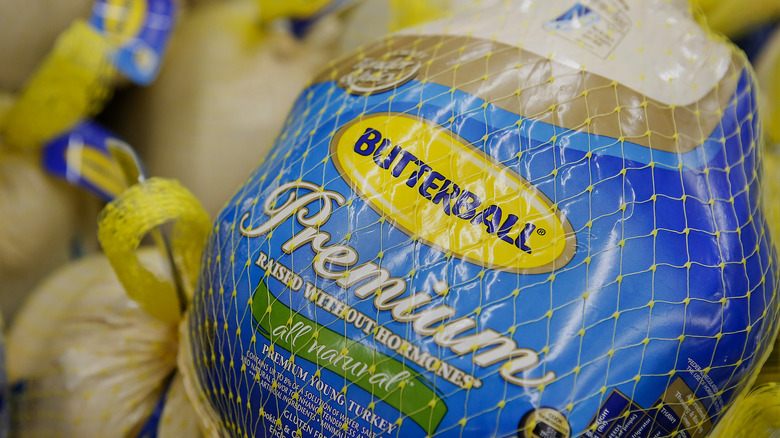Butterball Faces Boycott

Butterball Faces Boycott Amid Resurfaced Turkey Abuse Allegations
Butterball, a major turkey manufacturer, is facing a boycott after the resurfacing of allegations of abuse at one of its plants. The allegations, which date back to 2006, were brought to light again by the animal rights organization PETA.
According to PETA, an undercover investigation at a Butterball plant in Arkansas revealed instances of sexual assault and abuse against live turkeys. The investigation reportedly showed workers slamming live birds into shackles, strangling them to death, and punching them in the face.
The resurfaced allegations have sparked outrage on social media, with many people declaring that they will no longer purchase Butterball turkey products. Some have even shared videos of themselves returning their Butterball turkeys to the store.
PETA has welcomed the backlash against Butterball, with a spokesperson saying that the response is “exactly what any animal advocate wants to see right before Thanksgiving.”
“We’re thrilled to see people taking a stand against animal abuse and refusing to support companies that prioritize profits over animal welfare,” the spokesperson said.
However, Butterball has refuted the allegations, pointing out that the undercover investigation took place nearly 20 years ago. The company has also emphasized its commitment to animal welfare, stating that it has implemented numerous measures to ensure the humane treatment of its turkeys.
“We take animal welfare very seriously and have a zero-tolerance policy for any form of animal abuse,” a Butterball spokesperson said. “We’re proud of our commitment to animal welfare and will continue to work tirelessly to ensure that our turkeys are treated with the respect and care they deserve.”
Despite the controversy, it remains to be seen whether the boycott will have a significant impact on Butterball’s sales. According to the National Turkey Federation, an estimated 46 million turkeys are consumed on Thanksgiving Day alone.
The controversy has also sparked a wider conversation about animal welfare and the ethics of the meat industry. Many people have taken to social media to express their outrage and disappointment, with some calling for greater accountability and transparency in the industry.
“I’m appalled by the allegations against Butterball and I won’t be supporting them anymore,” one person wrote on Twitter. “It’s time for the meat industry to take animal welfare seriously and for consumers to demand better.”
Others have pointed out that the allegations against Butterball are not an isolated incident, but rather part of a larger problem within the meat industry.
“This is just the tip of the iceberg,” one person wrote on Facebook. “The meat industry is rife with animal abuse and neglect. It’s time for us to take a stand and demand better.”
As the debate continues, one thing is clear: the resurfaced allegations against Butterball have sparked a national conversation about the treatment of animals in the meat industry. Whether or not the boycott will have a lasting impact on Butterball’s sales remains to be seen, but one thing is certain: the controversy has raised important questions about animal welfare and the ethics of the meat industry.
In recent years, there has been a growing trend towards greater transparency and accountability in the meat industry. Many companies have begun to prioritize animal welfare and sustainability, and some have even implemented third-party audits to ensure compliance with animal welfare standards.
However, despite these efforts, the meat industry still faces numerous challenges when it comes to animal welfare. Many farms and processing plants continue to prioritize profits over animal welfare, and some have even been caught engaging in egregious forms of animal abuse.
The controversy surrounding Butterball is just the latest example of the meat industry’s ongoing struggles with animal welfare. As consumers become increasingly aware of the issues surrounding animal welfare in the meat industry, it is likely that we will see greater demands for transparency and accountability in the years to come.
In the meantime, the boycott against Butterball continues to gain momentum. Whether or not it will have a lasting impact on the company’s sales remains to be seen, but one thing is certain: the controversy has raised important questions about animal welfare and the ethics of the meat industry.






